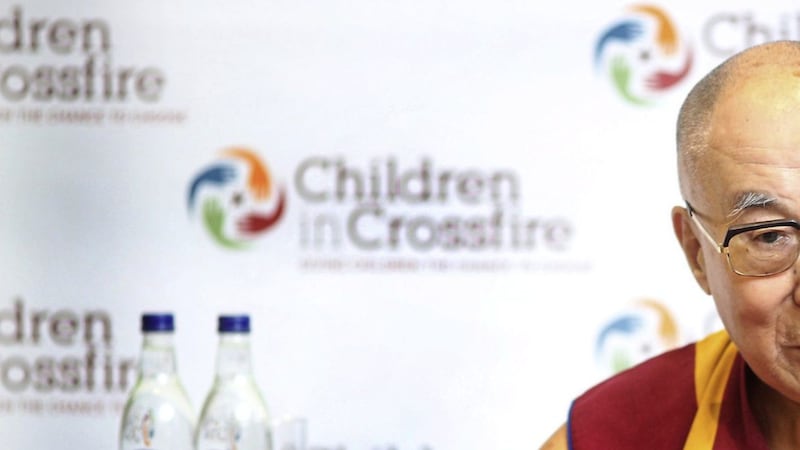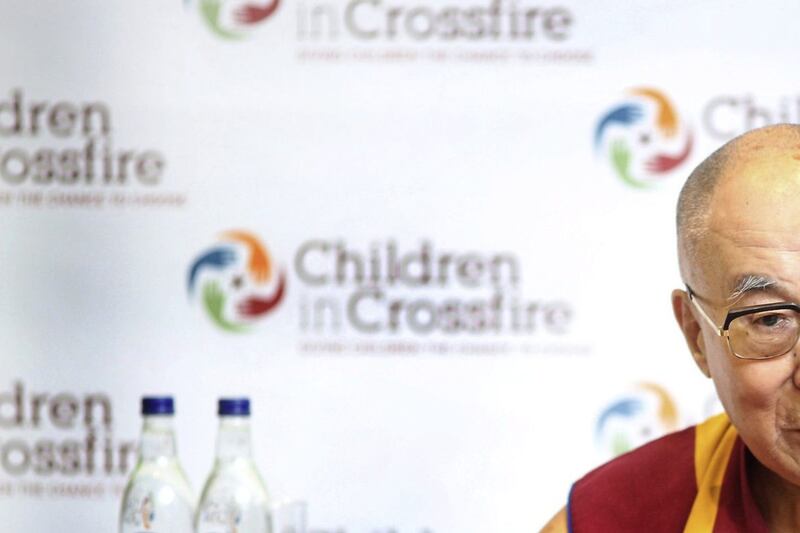“Don’t think what you are doing for the Twelfth; think what you’re doing for the Self.’
Now, the Dalai Lama almost certainly did not say this when he visited Northern Ireland along with Joanna Lumley on September 11 last - despite those mischievous people on social media. What is true, however, is that he does often refer to the need to be selfless, compassionate, and caring for those around us.
Well, I may not be a global icon of his status (although obviously, it’s only a matter of time) but I would suggest this could begin with our family, children and loved ones.
One way to protect our family is by protecting their financial wellbeing and future lifestyle by ensuring the right insurances are in place. That’s why life cover, critical illness, and income protection insurances fall under the umbrella of ‘family protection products’.
Life insurance, for instance. When you think about it, it’s one of the most selfless things you can do, because one thing is for certain – you’ll never see a penny of the money. You will be gone, but you’ll have insured and ensured the financial wellbeing of your family.
Here’s a practical fact to show you why life cover makes sense: the Association of British Insurers and also Scottish Widows tell us that while the average outstanding mortgage amount in the UK is £120,000, only half of house owners have covered their life. This means the mortgage could be left for spouse and children to pay, in the event of an unexpected tragedy. Furthermore, one in five of us had a life policy in the past that we either cancelled, or which lapsed.
Then there are critical illness and income protection insurances, the ones you take out in case you don’t die.
Take critical illness insurance (CI) for instance. CI covers you against the most common forms of severe health problems: heart attack, stroke, cancer, MS, or major surgery, and many other conditions as well, but cancer, stroke and heart attacks account for 80 per cent of claims.
Various reports have shown that a quarter of men and a fifth of women will have a major health setback during their working life. If you have to give up work due to one such major health setback, you can arrange your cover so that the tax-free lump sum could pay off your mortgage and outstanding debts, or replace your salary to allow you several years of convalescence.
CI might be particularly crucial if you are among the 4.25 million self-employed people in the UK. If you are a tradesman or other sole trader, your sickness could mean your company ceases to trade. You can’t exactly clean somebody’s carpets or wire their kitchen from a hospital bed.
And today, with an average of 98 per cent of claims being paid (source: ABI), CI is a very reliable form of cover.
Then there are a number of income protection (IPI) insurances that can provide you with a replacement salary, paid out monthly, for an agreed period if you have to stop work. These can provide an alternative income, typically equivalent to around half of normal income, tax-free, for the term of your policy – and it pays out alongside any other benefits you may receive.
However, taking out IPI is best done with professional advice, because different insurers have different definitions of ‘unable to work’.
They might accept that you are not able to do your own job, if it involves heavy manual work, for example, but maintain you would still be able to work in an office environment.
Despite the clear benefits of the above products, uptake from the public is remarkably low.
In one report, looking specifically at married people, Aviva found that nearly half had no life insurance, 70 per cent had no critical illness insurance, and 77 per cent had no form of income protection.
Family protection insurance makes sense. There’s an old adage in the family protection business: “You don’t buy insurance because you are going to die – you buy insurance because those you love are going to live.”
I’m sure the Dalai Lama would agree.
:: Michael Kennedy is an independent financial adviser and pensions specialist, and can be contacted on 028 71886005 . Further information on our Facebook page “Kennedy Independent Financial Advice Ltd” or our website www.mkennedyfinancial.com



